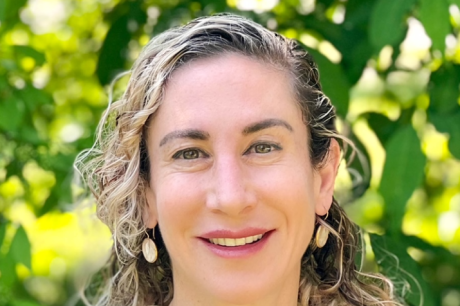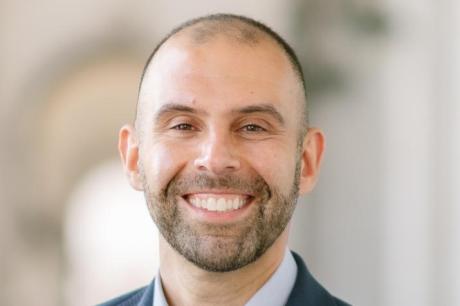By Kristen Pfau
On Sunday, I went with a friend from work to Bagamoyo, a small coastal town about 1.5 hours from Dar es Salaam. Bagamoyo is an incredibly historic town. In the 13th century, Bagamoyo was settled by Arab traders from Persia-- the first settlement of Arabs along this coast and therefore the roots of the Swahili culture. However, the port was slowly encroached upon by mangrove swamps, and the area was abandoned. The Kaole ruins--remnants of a mosque and cemetery built from sea coral around 1270-- were excavated from among the mangroves in 1958.
Many historians claim the Kaole ruins to be the first mosque in Eastern Africa. Bagamoyo began to build again in the 18th century, as Muslims originally from Oman took over the area for trading salt, ivory, and by the 19th century, slaves. Traders would come from the interior of Africa and stop through Bagamoyo on the way out to the island of Zanzibar, from which they would sail back to Europe and Asia. In 1868, the catholic "Fathers of the Holy Ghost" established a mission in Bagamoyo, building the first church in East Africa (and I am sure we have all heard stories of how missionaries and christian religion has since spread through Africa.) Bagamoyo also became a popular site for European explorers at this time, who would start their journeys into the heart of Africa at Bagamoyo. Notable among them were Henry Stanley, Richard Burton, and David Livingstone. These explorers, in addition to bringing more trade through Bagamoyo, also played an influential role in bringing autrocious stories of the East-African slave trade back to Europe. Dr. Livingstone is particularly celebrated in Bagamoyo, as he helped establish the town as a safe-haven for escaped and freed slaves.
The name "Bagamoyo" is some derivation of early swahili-arabic "lay down my heart", referring to this. Dr. Livingstone, as some might remember from history classes in their childhood, was famous for what today we would call travel-journalism- his adventurous stories from Africa became staples in the English news. When Europe stopped receiving his stories and determined that he was "lost in Africa", Stanley went on an epic quest to find him. They finally crossed paths in Ujiji, Tanzania in 1871, where Stanley is said to have uttered the infamous line, "Dr. Livingstone, I presume?" Livingstone, suffering from a number of ailments, refused to end his journey as Stanley urged. Instead he continued exploring, until finally succumbing to (who can guess????) malaria in 1873, in Zambia. His 2 faithful native porters buried his heart under a tree, then carried his body over 1000 miles up to Bagamoyo. Here, they rested a day before shipping the body back to London. Now I don't know about everyone else, but stories of these explorers have always captivated me--and not just when I was little.
Last summer, Discovery Channel aired an 8-week series called "Expedition Africa" in which a group of 4 modern-day "explorers" followed Stanley's historic 7,000 mile path from Zanzibar to Ujiji. My younger brother Mikee and I caught every episode, despite it being on at 10:30pm on Sundays (way past his 12-year-old bedtime, and honestly past my 23-yr old bed time as well...those Monday mornings were tough!!)...as well as watched them again online later in the week, and indulged in every website feature offered, including the online "board" game. Mikee always beat me. Needless to say, I loved Bagamoyo. Bagamoyo continued to be a busy port after the time of exploration. In 1886, it was named the capital of "German East Africa", the colonial era precursor to the United Republic of Tanzania. However, in1981 the capital was moved to Dar es Salaam. The port remained busy through both World Wars and had some significant roles during these wars. However, in the time since, nearby Dar es Salaam has rapidly grown as the center, as a result, the tiny town of Bagamoyo has quickly declined. Bagamoyo has gone up and down throughout history, and is now on a down due to Dar es Salaam's up.
My friend, like most people his age (30) and older living in Dar, was not originally from the city but rather from a more rural area on the other side of the country. He came to Dar 2 years ago to find a good job, which is a typical story in this city which practically didn't exist 30 years ago. On the drive to Bagamoyo, my friend pointed out the sights for me to take note of. Ten minutes past the city's technical border, we passed a region of large fields and big houses. "Five years ago, this area was all forest. Palm trees and baobab trees. You could buy huge plots of land for so cheap, anyone could own land. But now, ahh it is so expensive!!! Everyone who comes here to work in the big jobs, they want to live here because it is quite and less traffic, but they can get to work fast. So expensive, it costs $4,000 a month just for a small plot of land, not even with a house! iye, no one can afford to live here." Only 20 minutes from the city center, and we hit horrendous traffic-- an infinite line of cars on the small, barely-one-lane-wide road. "See the X's painted on all the buildings?" He said, pointing to the homes and shops along the road. "The government is going to expand this road, because drive to work every day and it takes them 3, 4 hours since the road is too thin.
The government is going to make the road wider, so these people have to move. But they don't mind because they have only been living here for two or three years." (side note: since it was a sunday, the traffic here was only about a 20-minute delay to our trip. I would have turned around if it took hours. nooo way.) On Monday morning, I woke up early to get to an 8:30am interview. When I asked the interviewee about what factors he felt contributed to variations in malaria prevalence in communities, he told me development was an important one. When development is planned, he proceeded to tell me, it can be done in a way that has incredible impacts on reducing malaria incidence and burden. In reality, there are hundreds of reasons that society can benefit from planned development and urbanization, and reducing malaria is almost a secondary, added benefit that will come along with the main purpose behind planned development. But, when a city develops unplanned, this will promote malaria, I was told. Sanitation is poor, people are crowded, water stagnates and trash collects, which encourages mosquitoes and disease transmission.
"When we think about the future of Africa's development and expansion, we need to plan ahead with our health in mind. If we proceed in a way that continues to harm our health, then soon we will not be healthy enough to proceed."



